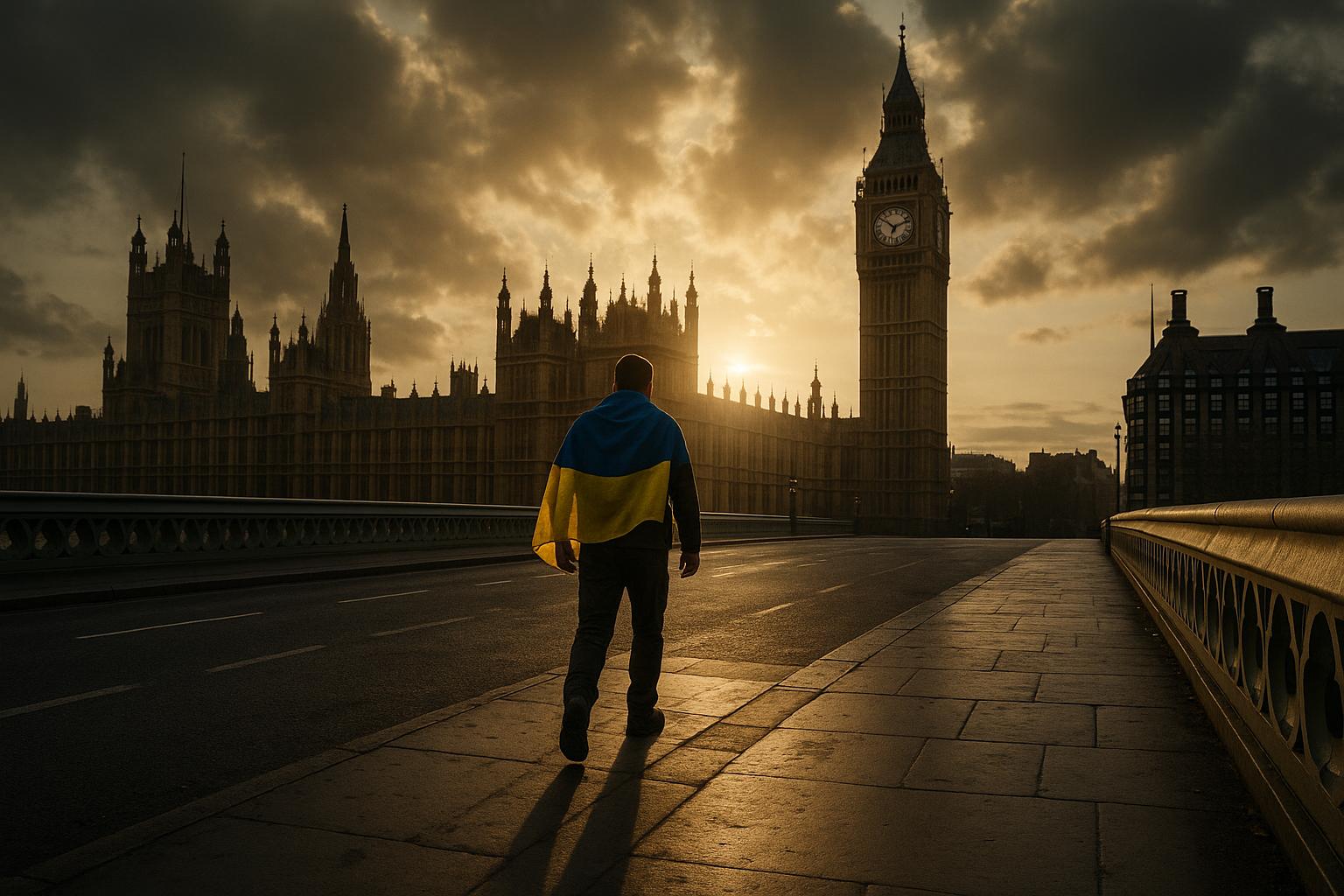On October 24, 2025, Ukrainian President Volodymyr Zelensky concluded a key visit to London, where he met with several European leaders to coordinate intensified support for Ukraine amid ongoing conflict with Russia. The discussions in London involved British Prime Minister Keir Starmer, French President Emmanuel Macron (via video link), Danish Prime Minister Mette Frederiksen, Dutch Prime Minister Mark Rutte, and NATO Secretary General Jens Stoltenberg. Zelensky reported that the group, known as the "Coalition of the Willing," agreed on several measures to strengthen Ukraine's defence capabilities and maintain robust sanctions pressure on Russia, particularly targeting its oil sector.
The leaders reached a consensus on the necessity of increasing sanctions against Russia’s oil companies, terminals, tanker fleet, and wider energy infrastructure. This decision aligns closely with recent U.S. actions that imposed restrictions on two major Russian oil exporters. Zelensky highlighted the unanimity among the coalition members in supporting these sanctions, framing them as critical tools to weaken the Russian economy and military resources. Echoing the necessity of sustained pressure, Zelensky also stressed Ukraine’s readiness to pursue diplomatic negotiations, provided these engage in genuine dialogue rather than mere rhetoric.
In addition to sanctions, the London talks focused on bolstering Ukraine’s air defence systems and protecting crucial energy infrastructure from intensified Russian attacks. Recent weeks have seen a surge in assaults on Ukraine’s energy grid, leading to widespread blackouts in key cities such as Kyiv, Donetsk, Odesa, and Chernihiv. Official Ukrainian sources report that Russia launched over 3,100 drones, 92 missiles, and 1,360 glide bombs in a single week, underscoring the urgency of bolstering defences. European leaders also discussed leveraging the PURL and SAFE programmes—initiatives aimed at enhancing Ukraine’s defensive capabilities, including air defence and energy security resilience.
The broader context includes coordination with the United States, which Zelensky emphasised as vital for achieving peace in Ukraine and ensuring credible security guarantees post-conflict. The summit participants agreed to maintain close collaboration to deliver long-range missile support and other military aid necessary to withstand Russian aggression. Parallel to this, there were calls for channelling frozen Russian assets held in Europe towards financial assistance to Ukraine, with the UK government, led by Starmer, pushing for EU measures on loans backed by these frozen funds.
Meanwhile, support on the ground in Ukraine is being reinforced from other European partners. On the day of Zelensky’s London visit, German Economy Minister Katherina Reiche arrived in Kyiv to lead a delegation supporting the repair and resilience of Ukraine’s energy infrastructure. Her visit signals Germany’s commitment to strengthening defence collaboration and addressing the challenges Ukraine faces in preparing for its fourth wartime winter amid escalating Russian attacks.
This renewed focus on energy security contrasts somewhat with earlier agreements earlier in the year, such as the March 2025 temporary suspension of strikes on energy facilities by both sides, brokered with involvement from the United States. However, the intensification of Russian attacks since has rendered such truces fragile at best.
In summary, the London meetings signal a united Western resolve to back Ukraine with military aid, impose stricter sanctions on Russian energy exports, and enhance Ukraine’s critical infrastructure defences. Zelensky’s address underlined a strategic blending of hardened sanctions with continued diplomatic engagement as Kyiv seeks to both resist aggression and pave the way for a sustainable peace with reliable security guarantees.
📌 Reference Map:
- Paragraph 1 – [1] (News Novyny), [2] (AP News)
- Paragraph 2 – [1] (News Novyny), [6] (Glavnoe)
- Paragraph 3 – [1] (News Novyny), [5] (AP News), [2] (AP News)
- Paragraph 4 – [2] (AP News), [7] (Kyiv Post)
- Paragraph 5 – [3] (Reuters)
- Paragraph 6 – [4] (Reuters), [5] (AP News)
- Paragraph 7 – [1] (News Novyny), [6] (Glavnoe), [2] (AP News)
Source: Noah Wire Services
